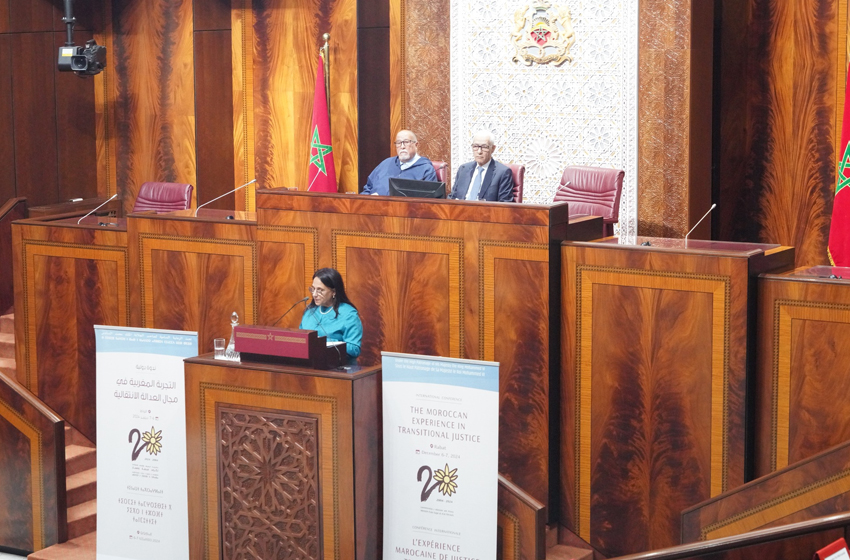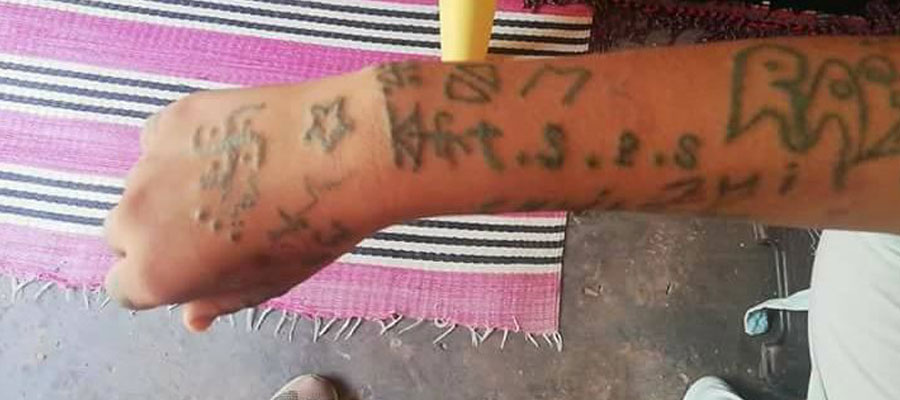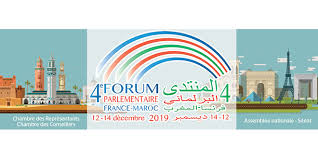King Mohammed VI underscored Morocco’s transitional justice experience and the equity and reconciliation commission as a crucial “building block” in the transition to democracy, in the consolidation of the rule of law and of institutions, and in the protection of freedoms.
This came in a Royal letter to the participants in an international symposium on “Transitional Justice,” organized in Rabat in commemoration of the 20th anniversary of the Equity and Reconciliation Commission, under the theme “Transitional justice processes: for sustainable reforms”.
The event is an opportunity to remind current and future generations of the reforms and reconciliations that have taken place in the Kingdom of Morocco, for which a bold policy based on consensus was adopted when we revisited our history, without any inferiority complex, the King said in the letter.
The Equity and Reconciliation Commission was “a sovereign decision that was part of a proactive process for managing public affairs. Based on a new concept of authority and on holding public institutions to account, that process aims to make sure all Moroccans enjoy a dignified life,” the King stated further.
Drawing on the specific features of the Moroccan identity, and regional and geographical ones, the Commission’s goal was “to address the cases of all victims, irrespective of their background or political affiliation,” he said, adding that the focus was therefore placed on all human rights violations, from the early years of independence to the creation of the Equity and Reconciliation Commission.
“This made it possible to identify and look into all forms and types of abuse our country witnessed in the past, irrespective of their nature or scope. We were also able to conduct the necessary field investigations and inquiries, organize public hearings in cities and villages, and collect testimonies to establish the truth and achieve individual and collective grievance redress, taking into account the gender perspective, thus further enhancing Moroccans’ reconciliation with their history,” the King said.
With an active participation of the civil society, the Moroccan transitional justice experience contributed to enhancing collective awareness about combating human rights violations, the Monarch said.
“Through the recommendations made by the Equity and Reconciliation Commission – which also made proposals on public policy and emphasized the need to further promote the constitutional protection of human rights – it was possible to lay down a regulatory framework for broad-based reforms,” the Monarch said, noting that “They included the implementation of constitutional and legislative reforms, the creation of consultative and institutional mechanisms to break with past violations, the proper management of public affairs based on justice and the rule of law, and the promotion of a fresh dynamic within society.”
“I was keen to make sure human rights were fully reflected in the constitution, in legislation and in public policies, knowing that they range from the political to the environmental sectors, and from economic to social and cultural considerations. Concurrently with that, I set up the institutions and constitutional mechanisms needed to protect the full range of human rights,” the King said.
In the letter, the King also underscored the concept of regional justice in development policies, adding that he sought to make sure that “underserviced regions are no longer marginalized when it comes to achieving development and benefitting from the dividends of progress in the Kingdom of Morocco.”
“These are major reconciliation measures with history and in terms of regional development planning,” King Mohammed VI said in his letter



